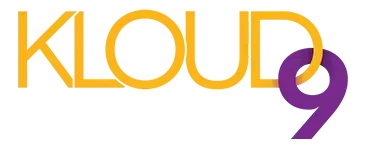Will technology one day make hospitals obsolete? It sounds impossible. But based on a recent report from CBS Atlanta, an international study on technology and health discovered that a majority of people around the world believe that traditional hospitals will become obsolete due to tech advances.
- Columbus: (614) 702-7700
- Cleveland: (216) 393-2484
- Akron/Canton: (330) 685-9100
Blog
What does the future hold? Ask IBM
Five years is a long time in the tech world. This is why so many look forward each year to IBM's forecasts on where technology will be in the next five years. Forbes columnist Greg Satell recently wrote a column looking at IBM's latest five-year predictions.
The next five years of tech innovation, according to IBM
Five years is a very long time in the technology world. That's why many look forward every year to IBM's predictions on where technology will be in the next five years. Forbes columnist Greg Satell recently wrote a column examining IBM's latest five-year predictions.
Is the end ready for Windows 8?
Is this the end of Windows 8? If recent claims in the tech media are accurate, the much-disparaged Windows operating system could be meeting its end. InfoWorld writer Woody Leonhard recently took a look at the rumors. And if what he's found is true, Windows 8 might soon be replaced by a trio of new products.
Is Windows 8 on its last legs?
Is this the end of Windows 8? If recent stories in the tech media are to be believed, the much-maligned Windows operating system might be coming to an end. InfoWorld writer Woody Leonhard recently took a look at the rumors. If what he's found is true, Windows 8 might soon be replaced by a trio of new offerings.
Tech doesn’t have to make the workplace a less human place
Are you annoyed by the long chain of e-mail messages in your inbox each morning? Do you wish you could speak to your co-workers in person instead of over Skype? It's not just you. Many employees lament that new technologies have eradicated most of the face-to-face work of the business world.
The growing business of digital comics
Tablets are hot, and the market for these mobile devices is a crowded one. Ethan Gach, a columnist for Forbes, recently wrote that Walmart alone sold more than 1.4 million tablets during its November Black Friday sales event. But retailers are not the only ones profiting from the tablet boom: As Gach writes, so are comic publishers.
Tech letting retailers snoop on their shoppers
How much privacy do you expect when shopping for a winter coat at your local department store? What about when you're browsing the shops at the nearest indoor mall? Well, you shouldn't expect much. New technology is rendering it ever easier for retailers to snoop on the products you buy and the path you take through a store or mall.
Do we need high-tech snow gloves?:
Ever get the urge to call your boss while you're showering? Ever need to talk to your significant other and keep shoveling snow while doing so? You're in luck: Manufacturers have created two new tech gadgets which give you the ability to tackle these dubious tasks.
What’s keeping Samsung from dominating the business market?
No one could argue that Samsung isn't a leading force in the smartphone and tablet industry. Consumers are flocking to these devices. But the word "consumers" is the key in that last sentence. In spite of Samsung's successfulness in selling tablets and smartphones to consumers, it still has a lot of work to do to draw business leaders to purchase its phones.

